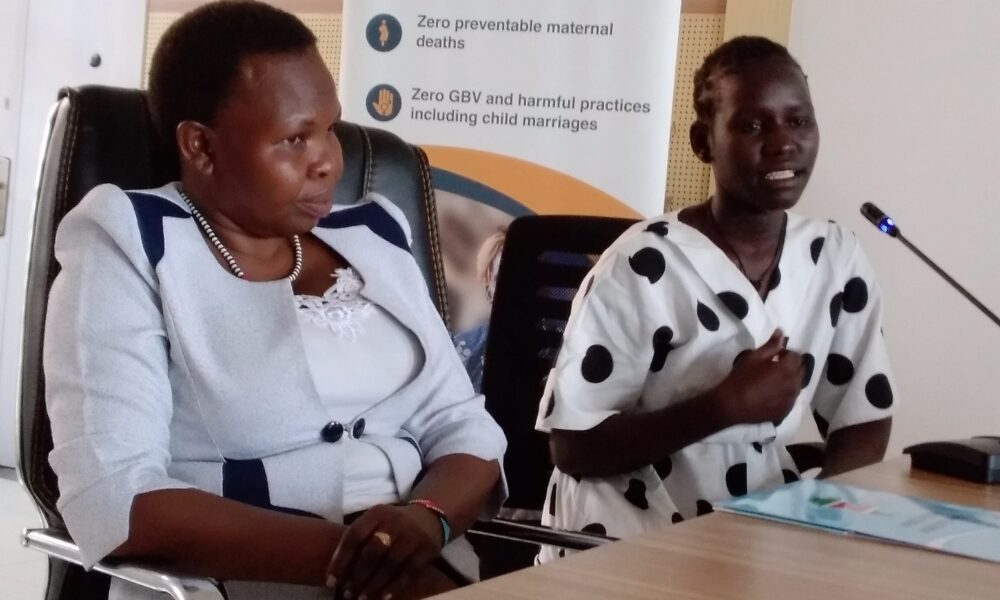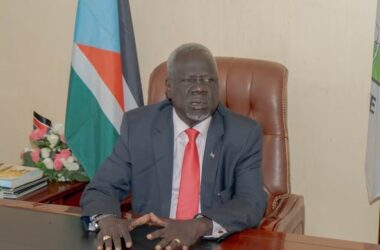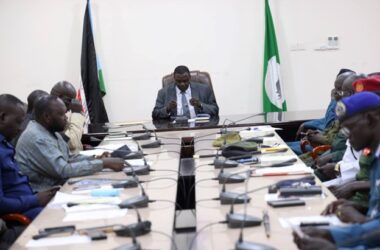By Kei Emmanuel Duku
In the heart of South Sudan, the cries of women suffering from obstetric fistula echo through communities, their voices often drowned out by the silence of stigma and neglect.
This devastating childbirth injury, caused by prolonged and obstructed labour, has become a symbol of the country’s fragile healthcare system and a major contributor to South Sudan’s alarmingly high maternal mortality rate.
Emmanuela Samuel, a 17-year-old mother and patient who underwent fistula repair in Juba, recounted her ordeal.
She became pregnant at a tender age and endured labour pains at home for three days. By the time she was finally taken to the hospital to give birth, she had lost too much energy to deliver normally.
“When the doctors realized my worsening condition,” Emmanuela narrated, “I was rushed to the theatre for a Caesarean section. Unfortunately, after the operation, I started experiencing an uncontrolled flow of urine and faeces from all over my private body parts.”
Emmanuela initially thought she was the only one suffering from obstetric fistula. However, when she was taken for fistula repair at the Hai Referendum area in Juba, she encountered many other girls and women with similar conditions.
Emmanuela emphasized that patients living with obstetric fistula deserve the same respect as anyone suffering from other illnesses. “However, patients suffering from obstetric fistulae are normally subjected to severe stigmatization within their communities and respective families,” she noted.
She shared that before her fistula repair at Hai Referendum, some of her relatives and community members shunned her due to the smell of urine and faeces.
“All those who underwent fistula repair that day at the Hai Referendum area had successful operations,” Emmanuela said while carrying a child. “I thank my mother who stood with me despite all the difficulties I went through then.”
She appealed to young girls to prioritize education over early marriage, stating that although her future was affected by obstetric fistula, she is happy to have resumed her education after successfully undergoing repairs.
Christine Simon, another fistula patient who also underwent repair, narrated that she developed the complication in 2022 while still in Sudan.
Christine explained that she experienced labour pain for three days. On the fourth day, a scan revealed that her unborn baby had succumbed, and the only way to save her life was an emergency Caesarean section.
After spending a week in the hospital, she began experiencing stomach pain. Though initially prescribed drugs, she soon developed severe diarrhoea. Upon further examination, doctors recommended obstetric fistula repair.
She added that between 2022 and 2025, she underwent fistula repairs three times. She highlighted that before her repairs, the level of discrimination from the community was alarming.
“Before the repair, urine and faeces continued to leak even after the bladder was removed,” Christine recalled. “People now dissociate themselves from me; I eat, stay, and sleep alone.”
Christine, a widow who married at 19, said she developed an obstetric fistula in Khartoum, Sudan. Since 2022, she had been searching for treatment. Upon returning to her hometown of Renk in Upper Nile State, someone advised her to come to Juba for treatment.
She recounted the painful moment of losing her baby and spouse and having to rely on her relatives, particularly her mother, while seeking obstetric fistula repair over the past three years.
She appealed to the public to treat fistula patients equally, emphasizing that developing labour complications leading to obstetric fistula is not an individual’s wish.
“It is inhumane to insult, abuse, or even laugh at one’s health condition,” Christine stated. “There are some situations as a fistula patient, if you want to greet someone, that person will tell you, ‘You are not my type.’ Such words are not good; the public should treat people equally regardless of their health status.”
According to the World Health Organization (WHO) and the United Nations Population Fund (UNFPA), obstetric fistula remains a significant global health challenge, particularly in low-income countries like South Sudan, despite being almost entirely preventable and treatable.
Dr. Anthony Lupai, a Gynaecologist at Juba Teaching Hospital and also the Director General, explained that obstetric fistula occurs during prolonged and obstructed labour.
At this time, the baby’s head puts continuous pressure on the tissues of the birth canal (vagina, bladder, and rectum). This pressure cuts off the blood supply, causing the tissues to die (necrosis). When the dead tissue sloughs away, a hole or opening is left, leading to an abnormal connection between the birth canal and the bladder or the rectum, resulting in uncontrollable leakage of urine or faeces.
He noted that South Sudan carries a heavy burden of obstetric fistula cases. He attributed the surge to early/forced/child marriages, lack of access to antenatal care services, and an insufficient number of qualified healthcare workers to manage obstetric fistula cases nationwide.
The Director General further highlighted that current insecurity and conflict in some parts of the country make it difficult for women and pregnant mothers to access maternal and reproductive health services.
“As a country, things are not moving in the right direction in the fight against obstetric fistula,” said Dr. Lupai. “If we are to achieve Agenda 2030 of ending fistula, we need to put ourselves right by ending the war.”
Meanwhile, Dr. Yousf Deng, a Health Expert at the National Ministry of Health, stated that the surge in obstetric fistula cases has a direct link to traditional cultures and beliefs of forcing girls into early marriage.
To minimize these cases, he stressed the need for grassroots awareness campaigns about the dangers of forced/child/early marriages in South Sudanese communities.
He added that beyond community sensitization, the government should enact legislation to prevent early or child marriages.
“We should not wait until obstetric fistula affects us and then start looking for treatment,” stated Dr. Deng. “Unless we have policies that prevent early child marriages and strongly punish perpetrators, we will not be on the right path to ending fistula by 2030. So, our policymakers have a big role to play if we need to end fistula in South Sudan.”
Dr. Deng commended the young girls who defied stigma and publicly sought obstetric fistula treatment. He appealed to other patients living with obstetric fistula not to succumb to their condition because of stigma.




